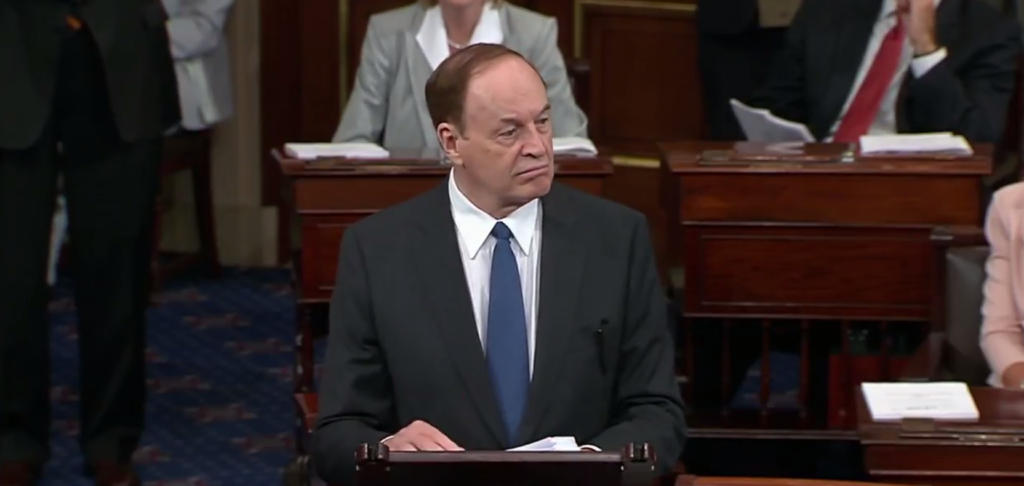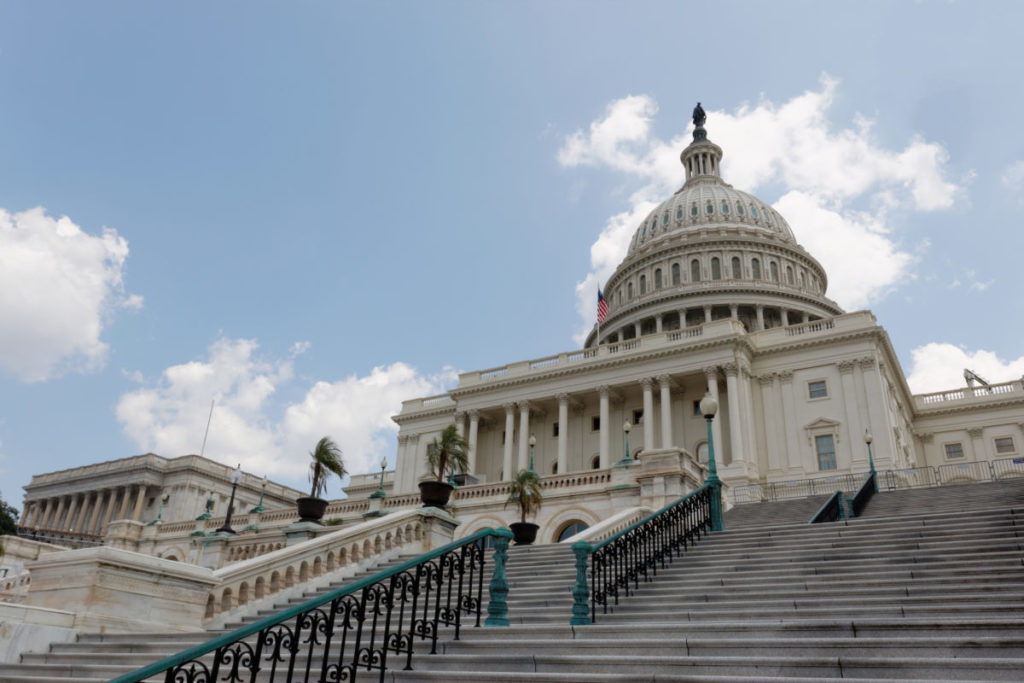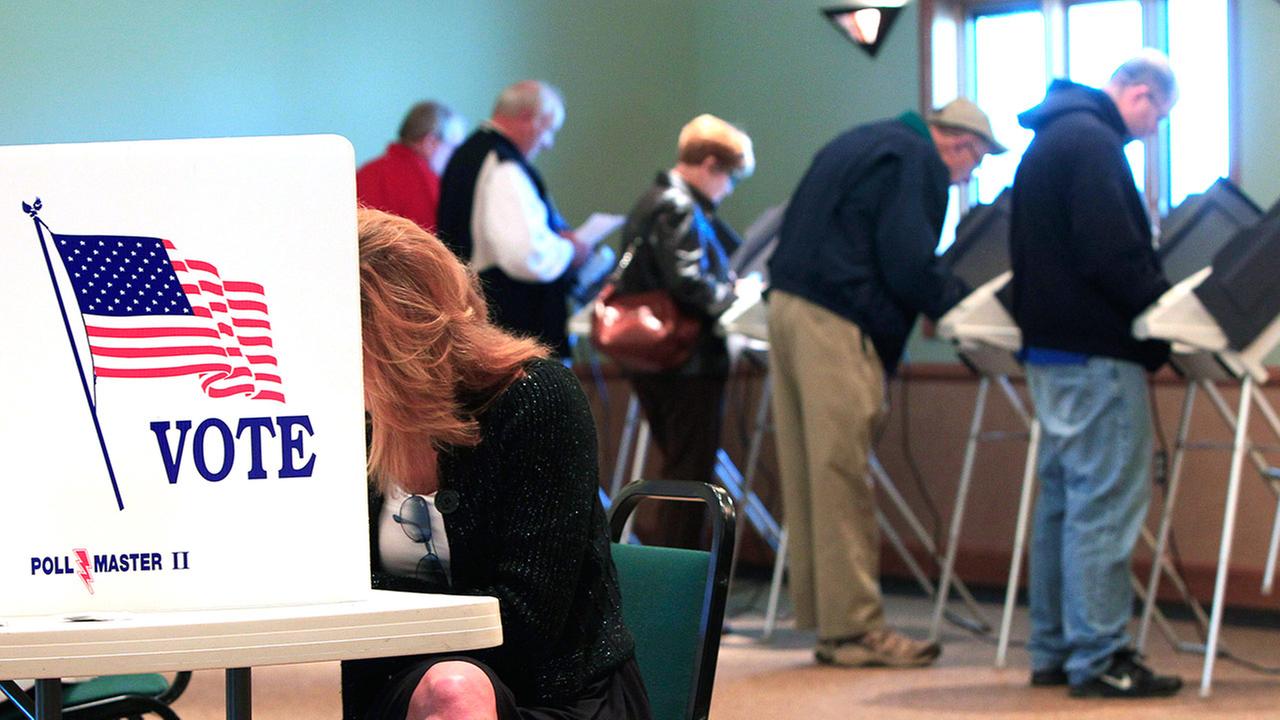Richard Shelby joins elite crowd having cast 10,000+ Senate votes

Alabama U.S. Senator Richard Shelby joined an elite crowd of U.S. Senators this year when he cast his 10,000 vote on the Senate floor earlier this year. Shelby, the chairman of the prestigious Senate Committee on Appropriations, on Wednesday was recognized by his Senate colleagues for his achievement that has put him among the ranks of only 32 other members, past and present, in the upper chamber. “Like so many of his accomplishments, that landmark seemed to slip by without a whole lot of fuss,”Majority Leader Mitch McConnell on the Senate floor. “But, what a remarkable milepost in a very distinguished career.” McConnell began the remarks and was followed by Minority Leader Chuck Schumer (D-N.Y.) and Appropriations Committee Vice Chairman Patrick Leahy (D-Vt.). “As he took the reins of the Appropriations Committee, he made it clear that, working with Senator Leahy, regular order would be the name of the game,” McConnell added. The Senators also commended Shelby for bringing back regular order to the appropriations process. Under Shelby’s leadership, and with the help of his colleague, Leahy, the appropriations committee passed all 12 major spending bills by July 4 — the fastest in three decades, since 1988. Shelby, who has served in the U.S. Senate for over 30 years, said he is humbled by his colleagues remarks. “I am humbled to hear Majority Leader McConnell, Minority Leader Schumer, and Vice Chairman Leahy speak about my achievements in the Senate this year. We have worked hard to move funding bills through regular order to restore the Senate’s appropriations process, as well as the faith of the American people. I am grateful to have been given this opportunity. Our progress so far is encouraging, and I hope we can continue on this path,” said Shelby. He continues, “Further, I am honored to have cast my 10,000th vote in the Senate this year. Thank you to the great people of my home state of Alabama who have voted to keep me in office for over 30 years, and to my colleagues and staff who have supported me along the way. This is truly a privilege.” Shelby also tweeted his thanks for the encouraging words. Thank you @SenateMajLdr, @SenSchumer, & @SenatorLeahy for the encouraging words today. Grateful to the great people of #Alabama for voting for me for over 30 yrs & to my colleagues & staff who have supported me along the way. #Appropriations #10000votes https://t.co/7pKNjDV6ry — Richard Shelby (@SenShelby) August 1, 2018 Watch the full remarks of Shelby’s recognition below:
Alabama editorial roundup: Aug 1, 2018 edition

Recent editorials from Alabama newspapers: ___ Aug. 1 Tuscaloosa News on low voter turnout and voter suppression: Have you heard? Turnout for the November general election is expected to be so high that election officials have decided to add a second day of voting. They’re asking Democrats to vote on Tuesday, Nov. 6, and Republicans to vote on Wednesday, Nov. 7. Hardy-har-har. We’ve heard various iterations of this joke over the years. Depending on who’s telling it, sometimes the joke is on Democrats, sometimes it’s on Republicans. We’re reasonably sure we even smiled the first time. We’re quite sure we knew it wasn’t serious. So should it be a crime? It could be under the Deceptive Practices and Voter Intimidation Prevention Act of 2018. Proponents of this proposed federal legislation — one of the bill’s sponsors is Alabama Sen. Doug Jones — likely would say that it’s not intended to apply to such instances. This latest version of a bill that has been introduced at least four other times over the last dozen years cites numerous instances of organized, intentional attempts to dissuade particular groups of voters from going to the polls by using “deceptive practices.” The bill would make these practices illegal within 60 days of an election with a federal office on the ballot, and defines them as involving “the dissemination of false or misleading information intended to prevent voters from casting their ballots, prevent voters from voting for the candidate of their choice, intimidate the electorate, and undermine the integrity of the electoral process.” Sounds serious, and indeed the penalties for a violation would be relatively stiff — up to five years in prison and a fine of up to $100,000. Clearly, this would stop some bad actors. But crafting a law that would fairly distinguish innocent or protected political speech from electoral sabotage is not that simple, and this one raises questions about unintended consequences. What about someone who tells the above joke? What about a flier that shows up in mailboxes on the Saturday before an election that denigrates a candidate with ambiguous allegations? Who decides what someone’s intent was or when some “practice” rises to the level of a violation? Might an overzealous, partisan prosecutor try to make an example of someone in the hyper-polarized political environment we’re living in now? We’d rather not leave it to chance. Anyone who meets the legal criteria for voting — and the purpose of those criteria should be to ensure free and fair elections — should not face any other impediments to casting a ballot. Lost in all this wailing and gnashing of teeth over voter suppression, however, is the notion of voter responsibility. Exercising the franchise should entail some buy-in on the part of the prospective voter, some effort to be aware of and understand election laws and current events. Without a doubt, efforts to undermine elections are increasingly a serious concern — today’s technology makes even the most sophisticated among us susceptible to deceit. Yet we are more troubled by voter apathy than by the prospect of nefarious attempts to keep voters from the polls. When turnout for many elections falls below 50 percent of registered voters, and often is far lower for run-offs and special measures, who needs suppression? Online: https://www.tuscaloosanews.com/ ___ July 30 The Gadsden Times on Alabama being ranked 42nd among the 50 states in the annual statistical atlas that is compiled by the Annie E. Casey Federation: Absent provocation, we generally try to keep an optimistic and positive outlook on things — which often means celebrating incremental progress. So we’ll do just that over the fact that Alabama showed improvement in the 2018 Kids Count Data Book, which measures child well-being among U.S. states. At the same time, we’re not going to sing choruses of Lesley Gore‘s 1965 single “Sunshine, Lollipops and Rainbows” when a situation remains unacceptable — as this one does. Alabama ranked 42nd among the 50 states in the annual statistical atlas compiled by the Annie E. Casey Federation, ahead of Texas, Oklahoma, Arizona, Alaska, Nevada, Mississippi, Louisiana and New Mexico. (We’ll even send out a salute to our neighbors to the west for not bringing up the rear.) Breaking it down into categories, Alabama is 37th in child health, 38th in economic well-being, 42nd in education and 43rd in family and community. It showed improvement in 11 of 16 indicators in the survey. This is Alabama’s highest overall placement since the data book debuted in 1990, and is up from 46th in 2016 and 44th in 2017. Those steps upward should be acknowledged — as should the fact that we remain in the bottom 18 percent of the rankings. The good: Compared to the start of the present decade, fewer Alabama children are living in overall poverty, in high-poverty areas or lack health insurance, and the number of high school students who fail to graduate on time has been reduced by more than half. The child and teen death rates have declined, and more preschool-age children are in school, getting the learning process started early. The bad: Although there’s been progress over the decade, too many Alabama fourth-graders remain non-proficient in reading and math. That age is considered a benchmark because it’s when more advanced concepts are introduced into curricula, and a child who gets behind could be headed for academic failure or becoming a dropout. Some folks will say the way to fix the problems is to spend more money. We won’t deny that such investments are needed, whether from government (a challenge in this state where, as we’ve observed repeatedly, “tax” is a four-letter epithet) or private entities. We think it’s more a question of will than cash, however. People whose mind-sets haven’t left Alabama’s agrarian past or the bygone days of smokestack industries must see the value in educating the next generation, and keeping them healthy, for a world in which the knowledge in their brains will matter much more than the strength
Senate passes $716B defense bill with support of Richard Shelby, Doug Jones

The Senate voted in favor of the National Defense Authorization Act (NDAA) conference report on Wednesday, sending it to President Donald Trump‘s desk for final approval. It passed the Senate by a vote of 87 to 10, with the approval of both Alabama Senators. The bill authorizes a total of $716 billion for national defense priorities. Specifically, the bill gives U.S. troops a 2.6 percent raise, which is the largest pay increase for our service members in nearly a decade. This bill also aligns policies and resources to assist in implementing this administration’s National Defense Strategy. “Passage of the defense authorization bill this early in the year is a hard-fought achievement for the Senate,” said Alabama U.S. Sen. Richard Shelby, Chairman of the Senate Appropriations Committee and its Subcommittee on Defense. “It is of the utmost importance that we prioritize our national security by properly funding our military and ensuring that they are highly trained and well-equipped to best defend the United States. This is an important step, and I look forward to securing our Defense Department’s funding through the appropriations process.” On June 11th, the Senate passed its version of the NDAA. Since then, conferees in both the House and the Senate have worked to iron out the differences between their bills. The president is expected to sign the bill into law quickly.
Good-paying jobs spur growth in Alabama’s Jefferson County

More than 3,500 jobs have been recruited to Jefferson County in the past 12 months and officials expect that number to increase by year’s end. “I expect another 200-job announcement soon and we’re a finalist in another more-than-a-1,000-job project that could be announced later this year,” said Jefferson County Commissioner David Carrington, chair of the Finance, Information Technology and Business Development Committee. In the past 60 days, the county has taken part in three major announcements: Amazon’s $320 million advanced robotics fulfillment center that will employ a minimum of 1,500 full-time employees; DC BLOX’s data center campus that is projected to result in $785 million in capital investment over the next 10 years; and Shipt’s decision to keep its corporate headquarters in Birmingham, adding another 881 employees. That’s in addition to recent announcements by Autocar, Evonik, Grupo Antolin, Iberia Bank, Pack Health and others. “It’s important to note that these projects are spread throughout the county in both unincorporated and incorporated areas: from Birmingham to Hoover and from McCalla to Center Point,” Carrington said. “These are good-paying jobs in diverse industries: from banking to advanced manufacturing and from distribution to technology. Salaries will range from $30,000 to more than $100,000.” Carrington pointed out that Shipt and Pack Health were started in Birmingham and are indicative of a budding technology ecosystem. Commission President Jimmie Stephens said he believes the county, after years of stagnation in some areas, has “turned the corner.” One reason is the collaboration among area leaders. “Teamwork is key to continued success,” he said. “We are stronger when we work together because our combined assets are greater than other competing areas. We just need to continue to communicate with one another and coordinate our actions and success will follow.” He added: “Communication with prospective prospects has been key along with matching vocational education opportunities to specific industry needs. Our workforce is diverse and is capable of meeting the needs of most industry needs. … We must market our area, tout our strengths and continue to demand excellence from our leaders.” The benefits of job growth go beyond the Birmingham metro area. “There is little down-side to more, better-paying jobs,” Carrington said. “They are the key to a healthier, growing community, more opportunities for our young people, fewer crimes, and higher government revenues without raising taxes.” Republished with permission from the Alabama NewsCenter.
Doug Jones introduces bipartisan bill to reform process for national security tariffs, increase oversight

Alabama’s newly elected U.S. Senator, Democrat Doug Jones is hoping to put an end to President Donald Trump‘s ability to impose steep import tariffs. On Wednesday, Jones, along with his Republican colleagues Ohio-Republican U.S. Sen. Rob Portman and Iowa-Republican U.S. Sen. and Joni Ernst introduced the Trade Security Act, legislation that will reform Section 232 of the Trade Expansion Act of 1962, which Trump is using to impose tariffs on imports. The legislation addresses the Trump Administration’s justification of implementing tariffs on certain imports by citing a national security concern. In order to prevent this scenario moving forward, the bill makes common-sense reforms that require the Department of Defense to justify the national security basis for new tariffs under Section 232 and increase congressional oversight of this process. “We cannot resolve perceived trade imbalances by accusing our allies of being a threat to our national security. If a trading partner is suspected of undermining our national security, that claim needs to be thoroughly investigated by those with relevant expertise in the Department of Defense,” said Jones. He continued, “Unfortunately, the current process led by the Department of Commerce has been misused to target important job-creating industries in Alabama like auto manufacturing. I’m proud to introduce this bipartisan legislation with Senator Portman that will reform the Section 232 process and help to refocus our efforts on punishing bad actors, rather than hurting American manufacturers, workers, and consumers.” Portman says misusing America’s trade tools not only hurts exports, but also consumer. “We must hold countries like China who violate our trade laws accountable, but we must do so in a way that protects American jobs and strengthens the U.S. economy,” said Portman. “As a former USTR, I know that misusing our trade tools not only hurts our exports and our manufacturers, but also our consumers, so I urge my colleagues to support this bipartisan legislation.” Ernst agrees in holding bad actors accountable. “When it comes to national security, we must hold bad actors accountable,” said Ernst. “I support the president’s ability to make trade deals and keep our nation secure, but the Department of Defense must justify the national security basis for new tariffs under Section 232, and we must increase congressional oversight of this process.” The Trade Security Act will reform the Section 232 statute and ensure that (1) any Section 232 actions are based on a national security determination by the Department of Defense; and (2) Congress has a larger role to play in 232 actions. Specifically, this bill will: Bifurcate the existing Section 232 process into an investigation phase, led by the Department of Defense, and a remedy phase, led by the Department of Commerce. Splitting these responsibilities, while guaranteeing consultation between the two departments at all stages of the process, plays to each department’s strengths to ensure that the statute is used for genuine national security purposes. Require the Department of Defense – instead of the Department of Commerce – to justify the national security basis for new tariffs under Section 232 and make the determination about the national security threat posed by imports of certain products. If a threat is found, the Department of Defense would send its report to the president. In the event that the president desires to take action based on the finding of a national security threat, the president would then direct the Secretary of Commerce, in consultation with the Secretary of Defense and the U.S. Trade Representative, to develop recommendations for how to respond to the threat. After receiving the recommendations of the Secretary of Commerce, the president would decide whether to take action. Increase the role of Congress in the Section 232 process by expanding the process whereby Congress can disapprove of a Section 232 action by passing a joint resolution of disapproval. Currently, Section 232 contains a disapproval resolution process limited only to the disapproval of actions on oil imports, which was a reaction to the only two uses of Section 232 over the past 55 years. This bill would expand the use of that disapproval resolution process to all types of products. The reformed disapproval process will only apply to future Section 232 actions. Require consultation with Congress throughout the Section 232 process.
State issues guidance on how Donald Trump’s tax cuts will impact on Alabama

The Alabama Department of Revenue (ADOR) on Tuesday issued its preliminary guidance on the impact of the provisions of the Tax Cuts and Jobs Act (TCJA) to the State of Alabama. Passed by Congress and signed into law by President Donald Trump on Dec. 2017, the TCJA enacted changes across the board to the federal tax system for both businesses and individuals, primarily for tax years beginning on or after Jan. 1, 2018. According to ADOR’s 50-page guidance, “the overall impact of the federal changes as it relates to Alabama income taxes is unknown until all provisions are in effect.” In fact the guidance is preliminary and subject to revision as more information becomes available, including additional federal guidance and input from other tax administrative agencies and/or the private sector. The guidance addresses whether, and how, the provisions of the TCJA are tied to Alabama’s taxing regime, as they relate to individuals (including sole proprietors), corporations, and financial institutions. “Since the Alabama corporate income tax is tied to the definition of federal taxable income ‘as in effect from time to time’, much of the fiscal impact of the TCJA on our corporate income tax revenues is automatic,” Bruce Ely, a tax attorney and partner at Bradley Arant Boult Cummings LLP in Birmingham, Ala., told Bloomberg Tax. “In contrast, our individual income tax scheme selectively conforms to the IRC counterpart and is outdated in many respects, so benefits like the new Section 199A deduction for owners of pass-through entities apparently won’t carry over into Alabama law—at least not without curative legislation.”
Birmingham City Council OKs $40M in GO Warrants, bonds for city projects

On Tuesday, the Birmingham City Council unanimously approved $40 million in General Obligation Warrants and bond refinancing, which will allow for capital funding for a several improvement projects throughout the city including not limited to Legion Field, Bus Rapid Transit (BRT), Wylam Library and the Birmingham Crossplex. More than $20 million of the funding will go toward the BRT project. Last year, the City Council last year approved the grant agreement with Federal Transit Administration for the $40 million project. The grant requires $20 million local match (50/50 match). The BRT aims to update Birmingham’s inner city public-transit system by connecting 25 neighborhoods from Woodlawn on the east side to Five Points on the west side The financing consists of two parts as follows: Approximately $40 million General Obligation Refunding Bonds Refinances Series 2007A Bonds Projected savings from lower interest rate is $7 million, with a net present value of $5.5 million The net present value savings as a percentage of the principal amount of bonds being refunded is approximately 11.8 percent, indicated a very efficient refinancing transaction True Interest Cost is approximately 3.18 percent Savings will remain in the Bond Reserve Fund to be used for any future voted bond issue Principal and interest payments will be over the same period as the outstanding bonds, through 2033 Approximately $40 million General Obligation Warrants Warrant issue will provide capital funds for the following projects: Bus Rapid Transit Grant Match: $20,000,000 BRT Additional: $1,750,000 Landfill Cell: $7,500,000 Industrial/Tech Park: $4,600,000 Legion Field Improvements: $2,250,000 Boutwell Improvements: $750,000 Central Library Stairs: $1,500,000 Wylam Library Additional Funds: $800,000 Crossplex Basketball Courts: $600,000
Judge blocks release of blueprints for 3D-printed guns

A federal judge on Tuesday stopped the release of blueprints to make untraceable and undetectable 3D-printed plastic guns as President Donald Trump questioned whether his administration should have agreed to allow the plans to be posted online. The company behind the plans, Austin, Texas-based Defense Distributed, had reached a settlement with the federal government in June allowing it to make the plans for the guns available for download on Wednesday. The restraining order from U.S. District Judge Robert Lasnik in Seattle puts that plan on hold for now. “There is a possibility of irreparable harm because of the way these guns can be made,” he said. Washington state Attorney General Bob Ferguson called the ruling “a complete, total victory.” “We were asking for a nationwide temporary restraining order putting a halt to this outrageous decision by the federal government to allow these 3D downloadable guns to be available around our country and around the world. He granted that relief,” Ferguson said at a news conference after the hearing. “That is significant.” Eight Democratic attorneys general had filed a lawsuit Monday seeking to block the settlement. They also sought the restraining order, arguing the 3D guns would be a safety risk. Congressional Democrats have urged President Donald Trump to reverse the decision to publish the plans. At a news conference Tuesday, Connecticut Sen. Richard Blumenthal said that if Trump does not block sale, “Blood is going to be on his hands.” Trump said Tuesday that he’s “looking into” the idea, saying making 3D plastic guns available to the public “doesn’t seem to make much sense!” Trump tweeted that he has already spoken with the National Rifle Association about the downloadable directions a Texas company wants to provide for people to make 3D-printed guns. The guns are made of a hard plastic and are simple to assemble, easy to conceal and difficult to trace. “We don’t agree with President Trump very much,” Washington state Assistant Attorney General Jeff Rupert told Lasnik, “but when he tweeted ‘this doesn’t make much sense,’ that’s something we agree with.” After a yearslong court battle, the State Department in late June settled the case against Defense Distributed. The settlement, which took gun-control advocates by surprise, allowed the company to resume posting blueprints for the hard-plastic guns at the end of July. Those plans were put on hold by the Seattle judge’s decision. During the hearing in Seattle, Eric Soskin, a lawyer for the U.S. Justice Department, said they reached the settlement to allow the company to post the material online because the regulations were designed to restrict weapons that could be used in war, and the online guns were no different from the weapons that could be bought in a store. Since the weapons “did not create a military advantage,” he told the judge, “how could the government justify regulating the data?” But Rupert said a restraining order would keep the plans away from people who have learned about the technology and want to use it to get around gun laws. Hours before the restraining order was issued, Democrats sounded the alarm, warning about “ghost guns” that can avoid detection and pose a deadly hazard. The company’s website had said downloads would begin Wednesday, but blueprints for at least one gun — a plastic pistol called the Liberator — have been posted on the site since Friday. A lawyer for the company said he didn’t know how many blueprints had been downloaded since then. Outrage over the administration decision is putting gun control back into the election-year political debate, but with a high-tech twist. The president seemed to express surprise. He said on Twitter he was looking into the idea of a company providing plans to the public for printing guns, and he said it “doesn’t seem to make much sense!” Democrats agreed and said Trump had the power to stop it. Some Republicans also expressed concern. “Even as a strong supporter of the Second Amendment — this is not right,” Alaska Sen. Lisa Murkowski tweeted, linking to a news story on the guns. The NRA said in a statement that “anti-gun politicians” and some members of the news media wrongly claim that 3D printing technology “will allow for the production and widespread proliferation of undetectable plastic firearms.” In truth, “undetectable plastic guns have been illegal for 30 years,” said Chris W. Cox, executive director of the NRA’s political arm. A federal law passed in 1988 — crafted with NRA support — bars the manufacture, sale or possession of an undetectable firearm. Trump spokesman Hogan Gidley made much the same point, saying the administration supports the law against wholly plastic guns, including those made with a 3D printer. But Democrats called the law weak and said gun users can get around it by using weapons with a removable metal block that the gun doesn’t need in order to function. Democrats filed legislation that would prohibit the publication of a digital file online that allows a 3D printer to manufacture a firearm. Democrats also filed a separate bill to require that all guns have at least one non-removable component made of metal so they can be discovered by metal detectors. People can use the blueprints to manufacture plastic guns using a 3D printer. But industry experts have expressed doubts that criminals would go to the trouble, since the printers needed to make the guns can cost thousands of dollars, the guns themselves tend to disintegrate quickly and traditional firearms are easy to come by. Republished with permission from the Associated Press.
Donald Trump calls on Jeff Sessions to end Robert Mueller’s Russia probe

President Donald Trump called Wednesday for Attorney General Jeff Sessions to put an end to special counsel Robert Mueller‘s Russia probe, a day after Trump’s former campaign chairman went on trial. Taking to Twitter to complain about the ongoing Russia investigation, Trump said Sessions “should stop this Rigged Witch Hunt right now, before it continues to stain our country any further.” The relationship between Sessions and the president has been strained for more than a year, since the attorney general recused himself from investigations relating to the 2016 election because of Sessions’ role on the Trump campaign. Mueller’s team is accountable to Deputy Attorney General Rod Rosenstein. Tuesday marked the first day of Paul Manafort‘s trial on charges of tax evasion and bank fraud brought by Mueller’s team, charges that stemmed from Manafort’s consulting work for Ukraine, for which he allegedly received millions he did not report to the U.S. government. Seeking to distance himself from his ex-campaign chairman, Trump said, “He worked for me for a very short time.” But Manafort’s involvement in the Trump campaign spanned six months, and he led efforts to secure the GOP nomination for Trump in 2016. Trump said the charges against Manafort “have nothing to do with Collusion.” Potential coordination between Russian government agents and the Trump campaign is still a matter of investigation by Mueller’s team, which is also investigating potential obstruction of justice by the president. Trump called claims of collusion “a Hoax.” Republished with permission from the Associated Press.
Jack Tucker: How conservative principles benefit the environment: a lesson from Alabama’s red snapper

Many coastal and red snapper loving Alabamians may find themselves disappointed by recent events. On July 16th, the State of Alabama announced that recreational red snapper fishing season would be cut six weeks short. A result of unexpectedly high catch levels this summer, the state reached its annual quota sooner than anticipated. For families and anglers who planned trips for late July and August, frustration with the early close is understandable. Why should the government be able to regulate an activity as natural as red snapper fishing? Unfortunately, over-fishing in recent decades has threatened the very survival of red snapper populations off the Alabama coast. Early government management strategies to address the problem included shortened seasons for both commercial and recreational snapper fishing. These strategies, however, struggled to revitalize gulf populations. While recreational snapper fishing is still constrained by short seasons, a revolutionary program instituted in the commercial sector in the mid-2000s has enabled snapper populations to flourish. Under the Bush administration, the federal government implemented an Individual Fishing Quota (IFQ) system in 2007. Based on property rights—a foundational element of a free market economy—the IFQ system created a personal investment in the fishery for each angler, thus incentivizing proper resource management. The red snapper IFQ grants each commercial fisherman a percentage share of the total allowable catch for that calendar year. Anglers can buy, sell, or lease their IFQ shares as property, giving them plenty of flexibility. Plus, they can choose when to fish throughout the year, keeping the market supplied year-round with fresh gulf snapper. Although not perfect, the IFQ program avoids stringent regulations that tell anglers when or how to fish. Most importantly, it encourages personal responsibility among anglers. This is because overfishing one’s share will deplete the fishery thus impairing anglers’ abilities to sell their shares on the market for a high price. This solution is rooted in the principle of limited government and in good stewardship of one of our state’s most precious resources. It’s proven to be successful, too. After low levels persisted for decades, red snapper reproductive capabilities have experienced a sharp improvement since the implementation of commercial IFQs. Additionally, the IFQ’s impact on rejuvenating gulf snapper populations has benefits which are beginning to trickle towards recreational anglers. This year, the National Oceanic and Atmospheric Administration—which regulates and manages red snapper fishing for the federal government—granted Alabama an Exempted Fishing Permit, allowing the state to manage its own recreational fishing season by setting the dates and tracking the pounds of red snapper harvested. This permit reduces federal oversight and returns control of snapper fishing to the state. It is a sharp turn from last year’s three-day federal season—prior to a federal extension—and a sign of longer recreational seasons and better fishing in the coming years. Despite the disappointment of a shorter season this year, red snapper fishing is on the rise thanks to this fundamental understanding of the power of property rights in free markets. Therefore, conservatives should invest an interest in environmental stewardship. The IFQ system demonstrates that, when applied to environmental challenges, conservative understandings of personal responsibility and limited government can reduce governmental obstruction to natural resource use and lead to positive outcomes. ••• Jack Tucker is a junior policy fellow at the Alabama Policy Institute (API). API is an independent, nonpartisan, nonprofit research and educational organization dedicated to strengthening free enterprise, defending limited government, and championing strong families. If you would like to speak with the author, please e-mail communications@alabamapolicy.org or call (205) 870-9900.
Steve Flowers: More analysis of GOP runoff

Currently, congressmen/women win reelection at a 98 percent rate. The communist politburo does not have that high of a reelection percentage. Maybe we have more in common with the Russians than Washington CNN reporters think. It is hard to get beat as an incumbent congressman. Martha Roby tried but even though she was the most vulnerable Republican incumbent congressperson in the country, she shellacked a former Montgomery mayor, one term congressman, and doggone good country one-on-one politician Bobby Bright. She beat him like a rented mule, 68-32. Two years ago, she blatantly said she was not going to vote for the Republican nominee, Donald Trump, for President. Trump and the Republican Party are very popular in the 2nd Congressional District. It is one of the most conservative and GOP based districts in the nation. Currently, Trump’s approval rating among GOP voters in the second district is 90 percent. Well, young Ms. Roby, became an instant pariah in her district. She would have lost overwhelmingly had the 2016 GOP primary not just been over. There was an unprecedented, record breaking, number of write in votes against her in the November 2016 General Election. It was assumed that whoever ran against her in this year’s GOP Primary would beat her. She was scorned and mocked in her district and even uninvited to GOP events. Indeed, four viable men ran against her in the GOP Primary. She outspent them four-to-one and still only got 39 percent to Bright’s 27 percent. She pulled it out in the runoff for two reasons. Donald Trump endorsed her, which was manna from heaven. Trump is very popular in Southeast Alabama and the reason she was in the doghouse anyway was because she said she was not going to vote for Trump. If Trump forgave her, then folks in Andalusia figured they would too. However, the big reason she won was because of the incumbency rule mentioned earlier. Washington special interest money stays with incumbents. The Washington money stuck with her like glue. She outspent Bright 9-to-1. It is impossible to overcome that kind of financial advantage. She learned her lesson. Bet you won’t see her involved in somebody else’s race again. It was an arrogant and unnecessary faux pas. First of all, nobody cares who a three term, backbench congressperson is going to vote for as president. Folks in a Republican district assume that you are going to vote for a fellow Republican. The Agriculture race ended about as expected in the runoff. Rick Pate led Gerald Dial 40-to-30 in the first primary. Pate beat Dial 57-to-43 in the runoff. Pate is a lifetime farmer and longtime Farmers Federation leader. The Alfa endorsement was critical in this race. They loyally supported him. Pate won even in the metropolitan counties. Alabamians inexplicably have a way of picking the farmer in this race. The turnout in the GOP runoff was abysmal. It was around 12 percent statewide. However, in counties where there were local races, it was between 25-35 percent. All politics is local. Walker Country had 25 percent turnout because they had a tough sheriff race. Marion had three local runoff races and voted at 28 percent. Marshall County had two local candidates running statewide, Will Ainsworth and Steve Marshall. They voted 19 percent. In Alabama political history, Barbour County has been known as the Home of Governors, and indeed, six Alabama Governors have called Barbour County home. In the 80’s and 90’s Cullman County claimed two Governors, Guy Hunt and Jim Folsom, Jr. Of course, little Jim’s daddy, Big Jim, was governor in the 1940’s and 50’s. That gave Cullman County three governors. Tuscaloosa has had three governors. They should rightfully claim Lurleen Wallace, who was born and raised in Northport. Only a few years ago, Tuscaloosa had a unique advantage of claiming the Governor Robert Bentley and Alabama’s Senior Senator and most powerful politico, Richard Shelby, at the same time. However, the results of the Republican Primary have propelled Marshall County into the limelight. Beginning with the next quadrennium, Marshall County will more than likely lay claim to both Lt. Governor Will Ainsworth and Attorney General Steve Marshall. For generations the legendary Beat 14 in Elmore County was the Bellweather box in the state for predicting the governor’s race and mirroring the results statewide. In recent years their clairvoyance has diminished. There is a new rival to Beat 14 in Elmore County, Patsburg in Crenshaw County has been getting it right for a while now. In the July 17 runoff, Patsburg got every race correct. As Patsburg goes, so goes the state. See you next week. ••• Steve Flowers is Alabama’s leading political columnist. His weekly column appears in over 60 Alabama newspapers. He served 16 years in the state legislature. Steve may be reached at www.steveflowers.us.

